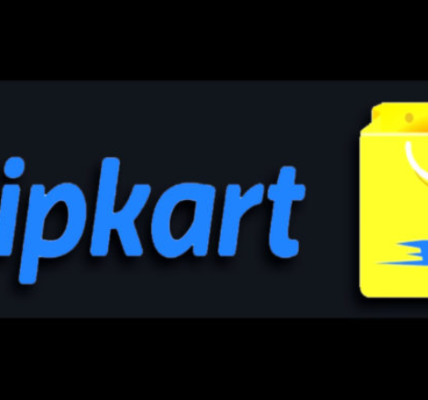Success Story of Snapdeal
E-commerce has revolutionized shopping, offering unparalleled convenience and a vast array of products with just a few clicks. This transformation has ushered the retail industry into a new era, characterized by increased speed and simplicity in the digital marketplace. Leading the charge in this dynamic e-commerce realm is Snapdeal, a platform that has significantly shaped the digital retail landscape.
Founded in February 2010 by Kunal Bahl and Rohit Bansal, Snapdeal started as a source for coupons, discounts, and exclusive offers, providing customers with a fresh and exciting way to shop online. Headquartered in Gurgaon, Snapdeal has grown into a powerhouse in Indian e-commerce, offering a wide variety of products and revolutionizing how people browse and purchase goods digitally.
Company Highlights
Startup Name: Snapdeal
Headquarters: Gurgaon, Haryana, India
Sector: E-commerce
Founders: Kunal Bahl, Rohit Bansal
Founded: 2010
Website: snapdeal.com
About Snapdeal
Snapdeal, India’s premier pure-play value e-commerce platform, stands among the top online lifestyle destinations. Part of the AceVector Group, Snapdeal is dedicated to providing high-quality products at competitive prices, aiming to make shopping enjoyable and reliable for the people of Bharat. With a focus on excellent customer service, Snapdeal allows suppliers to offer premium goods at affordable prices, maintaining its leadership in the Indian e-commerce market.
Targeting middle-class, value-seeking non-metro customers, Snapdeal’s logistics network reaches over 96% of India’s pin codes, ensuring order delivery to more than 2,500 towns and cities. This extensive reach demonstrates Snapdeal’s commitment to democratizing value commerce across the country, serving Bharat consumers at every stage of their offline-to-online purchasing journey.
Industry Context
The Indian e-commerce market is poised for significant growth, expected to rise from USD 112.93 billion in 2024 to USD 299.01 billion by 2029, according to Mordor Intelligence. Factors such as increased smartphone use and better internet accessibility are driving this trend, presenting opportunities for businesses to thrive through innovation and adaptation to changing consumer patterns. E-commerce plays a crucial role in transforming India’s retail landscape.
Founders and Team
Kunal Bahl and Rohit Bansal, high school friends turned business partners, co-founded Snapdeal. Both walked away from a merger deal with Flipkart to focus on serving 400 million value-conscious Indian consumers.
Kunal Bahl holds degrees in Systems Engineering from the University of Pennsylvania, Marketing and Operations Strategy from The Wharton School, and an Executive Program in Marketing from Northwestern University’s Kellogg School of Management. He co-founded Titan Capital in 2011 and AceVector Group in 2022, aiming to create impact through entrepreneurship.
Rohit Bansal holds BTech and MTech degrees in Computer Science from IIT Delhi. He co-founded Titan Capital and AceVector Group and is recognized for his skills in Team Management and Business Development.
Snapdeal employs between 501-1,000 people, as per its LinkedIn profile.
Startup Story
In 2010, Kunal Bahl and Rohit Bansal started with an offline couponing business called MoneySaver, selling 15,000 coupons in three months. This success led to the founding of Snapdeal on February 4, 2010, initially as a daily deals platform. By 2011, it had expanded into an online marketplace and has since grown into one of India’s largest online marketplaces.
Mission and Vision
Mission: To become the leading value lifestyle omni-channel platform in India.
Vision: To enable Bharat’s consumers to purchase with confidence and value, fulfilling their dreams. Snapdeal aims to reinvent affordable shopping experiences in India through state-of-the-art technology and a personalized, bilingual interface.
Business Model
Snapdeal operates a digital B2C marketplace, allowing third-party sellers to sell directly to customers. The platform supports sellers with delivery and logistical services, focusing on value-conscious consumers and affordable products.
Revenue Model
Snapdeal’s primary income source is commissions from sellers, calculated as a percentage of sales. It also generates revenue through targeted advertising and promotions, establishing itself as a strong player in the Indian e-commerce market.
Challenges Faced
Snapdeal faced significant challenges with Amazon’s entry into the Indian market in 2016. Struggling to secure funding and dealing with internal disagreements, Snapdeal implemented cost-cutting measures and reduced staff to improve financial stability. Despite exploring a merger with Flipkart, the proposal was rejected, and an IPO plan was shelved.
Funding and Investors
Snapdeal has raised $1.8 billion in funding over 14 rounds, with notable investors including Alibaba Group, SoftBank, and Nexus Venture Partners.
Growth and Achievements
Once valued as a unicorn, Snapdeal has achieved numerous milestones:
- 25 million monthly active users as of September 2023.
- Over 250 million app installations.
- Coverage of over 96% of pin codes in India.
- Order deliveries to more than 2,500 towns and cities.
- Integration with ONDC in 2023.
Awards and Recognitions
Snapdeal has received several awards, including:
- Editor’s Choice Award at Datacon2023.
- E-Commerce Legal Team of the Year (2019).
- Golden Peacock Award for Innovative Product/Service (2015).
- Best Company to Work For in Retail (2015).
- Star Retailer Award for Retail Campaign of the Year (2014).
Conclusion
Despite challenges, Snapdeal has remained resilient, focusing on value for customers and continual growth. With its extensive reach, innovative business model, and commitment to affordability, Snapdeal continues to shape India’s e-commerce landscape, making it a leading player in the industry.





